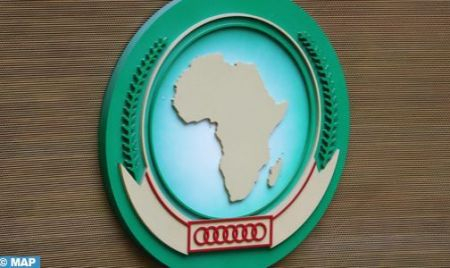PSC-AU: Morocco’s Efforts to Protect Conflict-Affected Children Highlighted in Banjul
The efforts undertaken by Morocco to protect children affected by armed conflicts were highlighted, Monday in Banjul (Gambia), during the Ministerial Retreat of the Peace and Security Council of the African Union (AU-PSC) on the African Child Protection Architecture and the Africa Platform on Children Affected by Armed Conflicts. Speaking at the panel on “Prevention of violations against children in conflict situations: implementation of the AU legal frameworks on child protection, the role of Member States”, Minister of Solidarity, Social Integration and Family, Aawatif Hayar, said that Moroccan participation in this two-day meeting is part of Morocco’s will to strengthen cooperation ties with the African Union and African countries, in all areas of sustainable human development in general, and the protection of children’s rights in particular. The minister also noted that the Kingdom, thanks to the High Guidelines of HM King Mohammed VI, and the personal involvement of Her Royal Highness Princess Lalla Meriem, President of the National Observatory for the rights of the child, has a committed vision and a public policy for the protection of children. Morocco has thus been committed for years to modernizing its legal, regulatory and institutional framework, by harmonizing national legislation with its international commitments, she added, adding that the 2011 Constitution gave an important place to children’s rights. In this regard, she recalled that the legal and institutional reforms undertaken by Morocco were, in particular, welcomed by the United Nations Committee on the Rights of the Child during the examination of its periodic report on the implementation of the International Convention on the Rights of the Child in 2014. She also stressed that the Kingdom was also among the first countries to sign and ratify the three additional protocols to the Convention on the Rights of the Child, including the protocol on children and armed conflicts, while committing to systematically align its national legislation with international human rights law.

